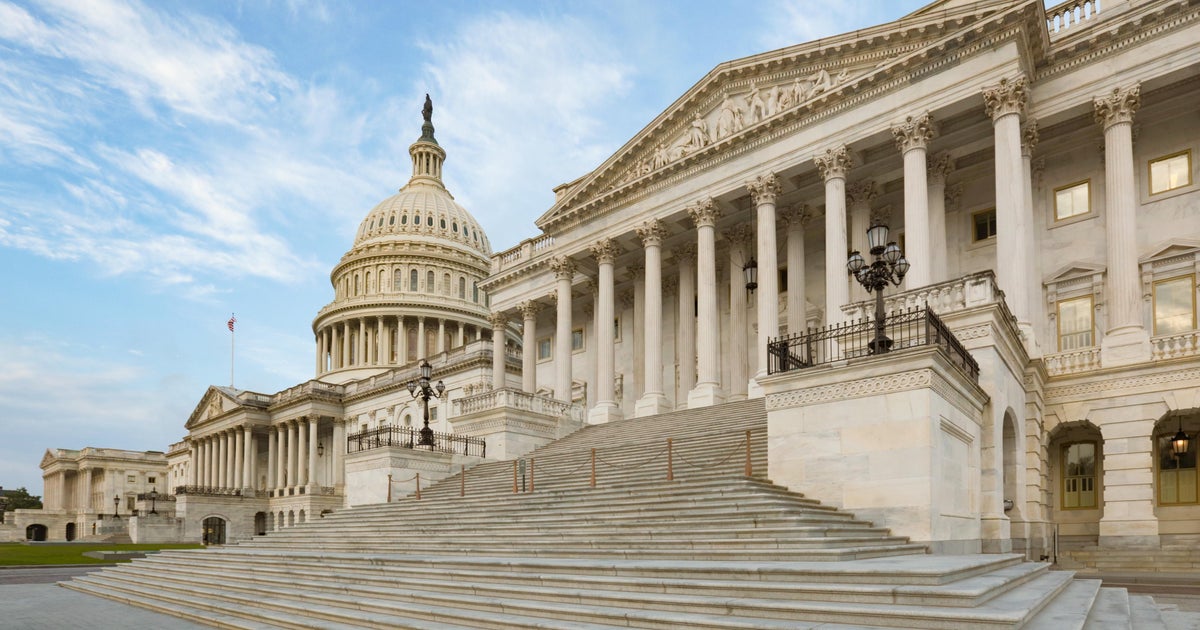CBS News
4 gold investing moves beginners should make this spring

Getty Images
With inflation stubborn (if cooled) and interest rates still elevated (if paused), investors need to be more judicious than usual with how they spend their money and where they keep it. Now, especially, it’s important to put your money in assets that can offer both protection and the potential for long-term growth. One such asset that many have turned to in recent years is precious metals, specifically gold and silver. Gold investing, in particular, hit an 11-year high last September and it’s easy to understand why.
Gold offers protection against inflation and can help with portfolio diversification. It can also safeguard your bottom line when other assets look unsteady, as many have in the face of inflation and high interest rates. That noted, timing is critical and right now is a great time for investors to get involved in gold. Below, we’ll review four gold investing moves beginners should make this spring.
Start by exploring your gold investing options online today.
4 gold investing moves beginners should make this spring
Here are four gold investing moves beginners should make this spring.
Understand your options
You may have seen television commercials highlighting gold bars and coins but those aren’t the only types of precious metal investments beginners can utilize. Gold IRAs, for example, can be ideal for retirement planning while gold exchange-traded funds (ETFs) may be preferential once your gold knowledge and understanding has increased. But don’t just jump in without understanding all of your options in advance. Utilize this time of lower inflation and elevated interest rates to improve your knowledge of this unique investment opportunity. This will boost your chances of gold investing success.
Learn more about investing in gold here.
Know your goals
Gold can generate income. But it’s not likely to generate income overnight – or as consistently or as quickly as other asset classes can. This is not a negative feature but it’s something to keep in mind for gold investing beginners. Know your goals, then, before getting started. If you’re looking for a hedge against inflation, a portfolio diversifer and a general buffer against the volatility of the overall market then gold can be beneficial for you. But if you’re looking for quick returns other investments may be preferable right now.
Get started
Once you understand your options and know your goals it’s important to get started. There are multiple, reputable gold IRA companies to utilize online right now. You can also use a local retailer if you prefer the liquidity physical gold bars and coins offer. You can even use big-name retailers like Costco and Walmart, which sell gold bars and silver coins online today (the former of which sold out quickly last summer). But don’t hesitate to get started now, as our next point demonstrates.
Monitor trends and prices
Gold hit a record high of $2,160 per ounce earlier this month. While it’s dropped slightly since it’s important to buy in now, before the cost becomes prohibitive. And you should monitor trends and prices after you’ve invested for opportunities to sell your investment – or buy more. Factors like inflation and geopolitical turmoil can easily affect your investment, which you should monitor closely just like you would any other.
The bottom line
If you’re a beginner gold investor now is a great time to get started. Thanks to the hedge against inflation it can provide, portfolio diversification and rising value, gold is particularly beneficial to invest in right now. But beginners need to be smart with their approach. This means understanding all of their potential investment options, knowing their goals, being proactive and getting started and, then, not becoming complacent and instead monitoring trends and prices. By making these four moves now beginners will boost their chances of success with gold this spring and in the months and years ahead.
CBS News
Social Security Fairness Act clears key Senate hurdle, heads to final vote

Legislation to expand Social Security benefits to millions of Americans cleared a key hurdle in the U.S. Senate on Wednesday afternoon and is now headed toward a final vote.
Senators voted 73-27 to approve a motion to proceed with consideration of the Social Security Fairness Act, according to an unofficial Senate tally shown in a webcast on the floor of the chamber.
“We will vote on taking up the Social Security Fairness Act to repeal flawed policies that eat away at the benefits of those who’ve worked as teachers, firefighters, postal workers, or public sector workers,” Senate Majority Leader Chuck Schumer said on social media shortly before the procedural vote. “Retirees deprived of their hard-earned benefits will be watching closely.”
The New York Democrat has pushed to bring the measure up for a full vote, which would eliminate two federal policies that prevent million of Americans, including police officers, firefighters, postal workers, teachers and others with a public pension from collecting their full Social Security benefits.
“Social Security is a bedrock of our middle class. You pay into it for 40 quarters, you earned it, it should be there when you retire,” Ohio Senator Sherrod Brown, a Democrat who lost his seat in the November election, told the chamber ahead of Wednesday’s vote. “All these workers are asking for is for what they earned.”
Sen. Thom Tillis spoke against measure, saying that while a small percentage of people are not getting what they should from Social Security, enacting what he framed as an unfunded government mandate that would increase the federal deficit “is not the way to fix it.”
“This bill will take $200 billion during the 10-year period out of the Social Security trust fund without any way to pay for it,” the North Carolina Republican added.
What is the Social Security Fairness Act?
Decades in the making, the Social Security Fairness Act would repeal two federal policies — the Windfall Elimination Provision (WEP) and the Government Pension Offset (GPO) — that broadly reduce payments to nearly 3 million retirees.
That includes those who also collect pensions from state and federal jobs that aren’t covered by Social Security, including teachers, police officers and U.S. postal workers. The bill would also end a second provision that reduces Social Security benefits for those workers’ surviving spouses and family members. The WEP impacts about 2 million Social Security beneficiaries and the GPO nearly 800,000 retirees.
“This stuff takes time, but 21 years is ridiculous,” said Brown of the process. The Senate held its first hearings into the policies in 2003.
The measure, which passed the House in November, had 62 cosponsors when it was introduced in the Senate last year. Yet the bill’s bipartisan support eroded some in recent days, with some Republican lawmakers voicing doubts due to its cost. According to the Congressional Budget Office, the proposed legislation would add a projected $195 billion to federal deficits over a decade.
At least one GOP senator who signed onto similar legislation last year, Sen. Mike Braun of Indiana, said he was still “weighing” whether to vote for the bill. “Nothing ever gets paid for, so it’s further indebtedness, I don’t know,” Braun said last week, the Associated Press reported.
“In the end it’s going to come down to individual members are going to make their own decisions about where they want to come down on that,” incoming Republican leader John Thune said at a press conference Tuesday. “Obviously I am concerned about the long-term solvency of Social Security and that is an issue I think we need to address.”
Without Senate approval, the bill’s fate would end with the current session of Congress, and would need to be re-introduced in the next Congress.
CBS News
Behind the House Ethics decision to release the Matt Gaetz misconduct report

Watch CBS News
Be the first to know
Get browser notifications for breaking news, live events, and exclusive reporting.
CBS News
Seeking a motive in the Madison school shooting case

Watch CBS News
Be the first to know
Get browser notifications for breaking news, live events, and exclusive reporting.


